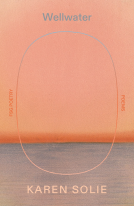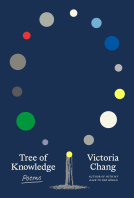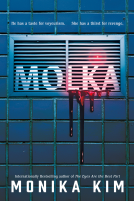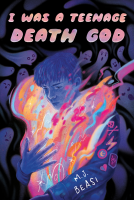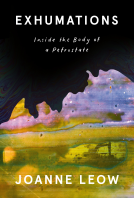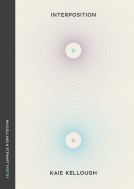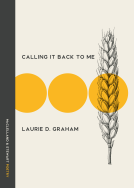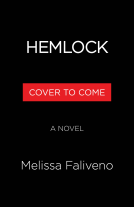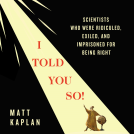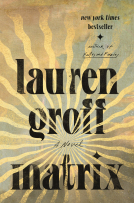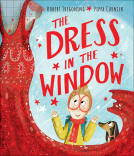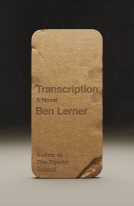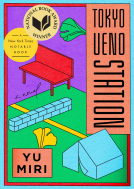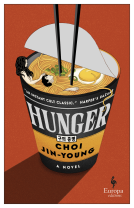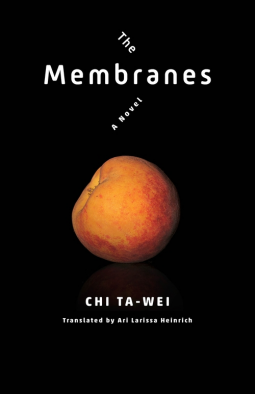
The Membranes
A Novel
by Chi Ta-wei
This title was previously available on NetGalley and is now archived.
Send NetGalley books directly to your Kindle or Kindle app
1
To read on a Kindle or Kindle app, please add kindle@netgalley.com as an approved email address to receive files in your Amazon account. Click here for step-by-step instructions.
2
Also find your Kindle email address within your Amazon account, and enter it here.
Pub Date Jun 01 2021 | Archive Date Sep 08 2021
Talking about this book? Use #TheMembranes #NetGalley. More hashtag tips!
Description
First published in Taiwan in 1995, The Membranes is a classic of queer speculative fiction in Chinese. Chi Ta-wei weaves dystopian tropes—heirloom animals, radiation-proof combat drones, sinister surveillance technologies—into a sensitive portrait of one young woman’s quest for self-understanding. Predicting everything from fitness tracking to social media saturation, this visionary and sublime novel stands out for its queer and trans themes. The Membranes reveals the diversity and originality of contemporary speculative fiction in Chinese, exploring gender and sexuality, technological domination, and regimes of capital, all while applying an unflinching self-reflexivity to the reader’s own role. Ari Larissa Heinrich’s translation brings Chi’s hybrid punk sensibility to all readers interested in books that test the limits of where speculative fiction can go.
Advance Praise
"This rather astonishing science fiction novel is a powerful story about consciousness and connection with other people. It cuts right to the heart of our current moment by way of metaphor, but in a manner that is entirely Chi’s, and thus a new thing for English language readers. What a surprising and exciting addition to science fiction and world literature."
—Kim Stanley Robinson, author of Red Mars
"What a breath of retro-fresh air! This wicked-smart cyberpunk throwback from the early days of networked digital culture presciently foregrounds issues of gender, embodiment, identity, and technology that have become all the more relevant over the quarter-century since its original publication."
—Susan Stryker, executive editor of TSQ: Transgender Studies Quarterly
"A classic that appeared far ahead of the current new wave science fiction in the Sinophone world, The Membranes remains a unique alterity in terms of genre-crossing and gender reflexivity. Chi’s beautiful, mesmerizing, provocative narrative creates a splendid labyrinth of metaphors and significances that leads to a revelation about the (post)human changeability in a matrix of monotonous inhumanity."
—Mingwei Song, coeditor of The Reincarnated Giant: An Anthology of Twenty-First-Century Chinese Science Fiction
"Readers will notice prescient echoes of modern life in Chi’s depictions of all-absorbing media consumption and loneliness in the midst of hyper-connection . . . [T]his captivating novel is rich and rewarding."
—Publishers Weekly
Available Editions
| EDITION | Other Format |
| ISBN | 9780231195713 |
| PRICE | $17.00 (USD) |
Average rating from 60 members
Featured Reviews
So this is a novella about Momo, a dermal care technician whose work is in touching and manipulating and penetrating skin, and who has a complicated relationships with intimacy and her mother, choosing to live and work alone, feeling abandoned and forgotten. Above her, there is sea and she dreams about breaching the surface; nations and corporations have been rebuilt underwater, the ozone layer so depleted that existence on land is no longer possible for non-mechanised forms of life. Brands and media conglomerates shape the undersea reality, while androids and cyborgs work in their factories and fight in their wars on the surface. It's a surreal & claustrophobic premise, to be trapped in a sequence of bubbles whose membranes you want desperately to break & whose destruction would kill you, from your personhood, to your skin, to the walls of your home, to your corporate function, to the surface of the water overhead. And as the novella progresses, the given understanding of these barriers, these membranes, shifts.
I think this is a genuinely brilliant piece of speculative fiction, & specifically a brilliant work of defamiliarisation, where the experience of having a body, of being a consciousness in a body, & of bodily autonomy and transformation is made weird & new, not only by the context but by the shape of the narrative, the startling, jolting movements it makes. I was paying more attention to that element, & the v interesting treatment of sexuality & gender that came of it, than to what Chi was doing with labour exploitation & technology & capital, but I would love to come back & re-read in the future!
Very glad to have the final critical essay by the translator to help me sort through my scrambled thoughts after finishing, and very glad that this work has been translated into English -- it's weird and grim and brilliant, & I think will stick with me.
This is the weirdest book I've read in a while. I really hated some parts and liked others for the originality and foresight, which is impressive for a book written in 1996.
There were a couple of chapters that were an infodump from beginning to end. The majority of the world building was completely irrelevant to the story, and the creepy, uncomfortable sex scenes also felt unnecessary. Of course, the fact that something was off with Momo's story and that she's an unreliable narrator becomes obvious only after you find out what's really going on.
I enjoyed the concept explored and the twist, but I think the writing style really did a disservice to the story.
Let’s talk about the many applications of membranes: for one they visibly keep the sea out of the underwater city, but they also invisibly filter one’s perspective of the world. The dermal layer that Momo applies to the skin of her clients is a tangible layer, but when this layer is scanned, the experience of the person that scans the skin is very much intangible.
It is the year 2100. Humans have moved to underwater cities to protect themselves from the power of the sun. Intermezzos explain in some detail how this happened, including the political and economical aspects of the transformation. In 1995, Chi Ta-wei predicted our failure at solving the environmental issues that we are facing. There is still reason to rejoice: apparently, humans succeeded at finding an answer to other pressing debates. In Membranes, one’s identity and gender are very fluid: it is something you can change anytime. I should mention that the author teaches about queer theory and disability at a university in Taiwan.
The main character, Momo, fights a constant battle with herself. She has a job reliant on intimacy and yet shuns intimacy in her private life. She wonders whom her body belongs to; is it to medicine, your job, yourself, or a partner? When you read about the memory skin she puts on her clients’ skin and later uses as a virtual reality experience for all senses, you’ll fully understand her thoughts about these subjects. Do take some time to think about that one finger that she surgically replaces… and imagine that you are living like a canary locked inside a beautiful cage.
The narrative is quite distant without any suspense. The Membranes doesn’t focus on worldbuilding but instead focuses on the meaning of identity and the value of life. What role do memories and experiences play in this? In an interesting afterword, the translator Ari Larissa Heinrich sheds more light on the background of the story. She also mentions that the author says this book is like a cyborg body.
I’d like to add my comparison to this: although the main character Momo is named after a peach that fell from a tree, she looks more like a canary released from a bird cage. This book is literally food for thought.
The Membranes by Chi Ta-wei shows a future in which intimacy, experiences, and identity are fluid. Though in the end, the membranes still keep everything in its rightful place. I recommend this book to people who like sci-fi and dystopian novels, and to whoever loves stories that make you think rather than feel immersed.
Note: trigger warnings for non-consensual gender reassignment and child molestation
Originally published in China back in 1995, Chi Ta-Wei’s novella The Membranes is a complicated story about what it is to be alive, to be human, and to what the freedom to live as one wants truly means. The dystopian world created almost 30 years ago touches on a lot of what is happening today and translator Ari Larissa Heinrich did an incredible job bringing this complex story to English readers.
I know very little about what the queer cultures (or lack there of in some cases) are like in the majority of Asian countries, but I know that it tends to be frowned upon at the very least and criminalised at the most. The fact that this was published in 1995 was so mind blowing to me given what little I’ve heard about censorship rules. Books have been criminalised and banned for far less than the blatantly queer content that fills the pages of this novella. Topics such as lesbian/wlw relationships and gender reassignment surprised me but it was fascinating to read them knowing it came from a Taiwanese writer.
While slightly triggering to me as a trans person, I really enjoyed this book and look forward to picking up a finished copy upon release.
I read The Membranes (膜) in both Chinese and English with one immediately following another, at first scene-by-scene, and as the story picked up pace, chapter-by-chapter. Both versions have very similar feels, and I am amazed at Heinrich keeping the translation so atmospherically close to the Chinese writing. There were a few differences here and there, whether to fit the English language, the present time (this work was originally published in 1995/1996), or simply because Heinrich felt that these fit their translation better, I am not sure, but I love a lot of Heinrich’s decisions. Also, from my understanding of the Chinese original, there were minor misinterpretations and overlooking some of Chi’s deliberate word choices, but fortunately these did not affect the overall picture.
The story follows a thirty-year-old aesthetician Momo as she reunites with her mother, whom she hasn’t seen in twenty years since she recovered from a major surgery. Throughout the story, bits and bits of information is slowly revealed, and we learn about Momo’s past as she learns it herself. The Membranes is a disturbing read that questions perceptions, experiences, reality, gender, and sexuality within the thin volume of 136 pages.
As a language nerd, I love Chi’s play on Momo’s name. Meaning peach (桃, momo) in Japanese, the fruit has a gay connotation (no, not because of CMBYN) since “peach sharing” (分桃, fēntáo) is a story between an ancient emperor and his male lover. “Momo” also means quiet in Chinese (默默, mòmò), which Heinrich aptly translated as “murmur.” In a way, she is also the namesake of the book, since The Membranes (note that the word also starts with the letter “M”) was titled 膜 (mó) in Chinese. There are a lot of words that begin with “M” in this sci-fi set in year 2100 underwater T City (“T City” often means Taipei in Taiwanese sci-fi): Megahard (a dig on Microsoft), memory, mirror, master, etc., all closely related to Momo’s mysterious life.
There are no human male characters in The Membranes and most characters are casually queer—trans, sapphic, achillean, etc., with almost everyone being Taiwanese, one Japanese, and one Indian. The main storyline isn’t focused on sapphic identities—I cannot even be sure if Momo is sapphic—but this novella is queer to the core. It is almost unbelievable that this was written in 1995 by a twenty-three-year-old queer Taiwanese man, that he chose to write this sci-fi that explores sexuality between women and also touches upon female masturbation.
The Membranes raises a lot of questions that is extremely relevant in the current world, even though it was written back when posthumanism wasn’t a widespread concept. When every action is based on previous interactions and socialization, adding technological advancements to the mixture, what is free will? And when perceptions are possibly altered, how does one know what is real and what is not? I recently tried Virtual Reality for the first time, and while the graphics were far from terrifying, it was truly disorienting—if I can be physically somewhere doing nothing yet virtually engaged in activities in another, where am I? Which experience is the real one? What do we trust?
The Membranes is the first Chinese-to-English translated book I have ever read, and I couldn’t have picked a better book. This 1995 Taiwanese sci-fi with casual queer characters is a short read, but the plot is intense, fast-paced, and kept me on the edge of my seat throughout. Way after finishing the story, the questions it posed still linger, surely to haunt me for a long time to come.
Wow, this book was quite the trip! In the beginning, I was very confused and kept having to reread passages for comprehension, which dampened my enjoyment. But as details were revealed, I found myself getting hooked, and by the end I was absolutely SHOOK!
This book made me uncomfortable at times and includes some graphic descriptions. All the characters are morally questionable. But dang, this book touches on so many topics and is perfect for hours of discussion. I’m so amazed that this was written in 1995; Chi Ta-Wei was truly ahead of his time.
 Reviewer 728783
Reviewer 728783
Chi Ta-wei's The Membranes, from what I've learned, is considered a queer sci-fi classic from Taiwanese literature. I was in awe to find so much representation and complexity in such a short book, especially for a work that was written in 1996.
While I can't speak for the accuracy of the translation, I find the way it was interpreted was mesmerizing. Researches were done, efforts were made. Kudos to the translator. I was amazed by how the author perceived the future of humanity, here it stretched from many aspects: environment, healthcare, economy, race, sexuality, etc. Many years have gone by, some predictions were proven to be false, but they weren't without based facts. The queer visibility was the highlight of this book IMO. For a dated work, it seemed unbelievable to tell you that the rep precedes many beloved LGBTQ+ books in the recent time, but it does.
Compliments aside, there were many details that didn't sit right with me while reading this. Most of them were to do with Momo's upbringing, or her Mother's decisions (if you read it, you'll get it), because I don't see how it was necessary to be portrayed here. As questionable as it was, the later revelation made this even more confusing to me. And on another note, I wished the book had stopped using the term "a dear friendship" to describe "lesbian moms."
TL;DR: A very interesting take on the future society with zero (0) cishets, but you might be uncomfortable with some details.
It's 2100, the Earth is basically on fire, and most of humanity has moved to cities on the bottom of the ocean. Rich people can have cyborg copies of themselves or their children created, organic robots that are an almost perfect copy, so that when the person or child falls ill they can take the required organ or body part from that cyborg.
Momo, our main character, is a thirty year old Chinese woman, living in one of these underwater cities. She is the daughter of the CEO of an ebook and software magnate called MegaHard (and yes, MicroSoft also still exists). Momo doesn't like her mother, she feels she has been abandoned by her. Momo spends most of her days as a skincare and massage therapists - in fact, she's one of the very best. She can apply an extremely thin layer of a membrane over a client's skin, supposedly for extra protection, so thin the client instantly forgets it's there. Next time they visit Momo, she carefully removes the membrane - turns out the membrane is a recording device, and Momo can play back those recordings on her computer.
That's only really the starting setup of the story. Momo isn't a character who is easy to like - she's a bit of an indie literature cliche, the younggirl who seems devoid of emotion and is averse to social contact (the book was written in the '90s). And the story pootles along, until there is a big TWIST, which I genuinely didn't see coming.
The book is a quick, easy read, but I do think the storytelling could've been handled more interestingly, with a more active role for Momo. The aformentioned twist is interesting, but then that's pretty much it, nothing is really done with this new information.
The book includes a lengthy, interesting essay by translator Ari Larissa Heinrich, that explores the cultural and historical context of the book.
This dystopian sci-fi book was a thought provoking look at memories and connection.
This book is not one telling a linear, clear story, but forcing your to confront yourself and think about topics you might not otherwise consider. It tackles queerness, identity, connection, and the idea of boundaries (or membranes) that keep you safe but also keep you distanced.
Moma is a main character that is hard to know, but her questionable choices lead to consequences that you are unable to look away from. This book isn't for everyone, but if you want an end-of-the world almost dream-like mind bender, look no further.
Thank you Netgalley for this ebook arc in exchange for an honest review.
 Vianne C, Bookseller
Vianne C, Bookseller
Well, this was certainly an interesting book.
I became interested in The Membranes upon finding out that it was a queer SFF book by a Taiwanese author and, after reading it, I am glad that I found this book, however, I'm not too sure exactly how I feel about it.
The Membranes is hard to describe, but the thing that stood out to me most about this book was the ideas and concepts it presented. Everything in this book was so weird and original and I really enjoyed getting to explore this world. Where this book didn't necessarily draw me in, though, was with... most other things. Because it was so short and idea-focused, the characters and plot felt a little lacking. I can't speak to how the translation compares to the original, but the writing in this book was also rather mediocre. There wasn't anything I didn't like about this book, it's just that nothing aside from the worldbuilding/concepts stood out to me.
Regardless, I still think it's a worthy read if you're into sci-fi books that heavily focus on concepts, or if, like me, you just want to read more translated Taiwanese literature.
 Reviewer 592455
Reviewer 592455
Thank you to Netgalley and the Publishers for giving me an ARC!
I... am astounded by the power of the reveal in this book. It feels so sudden but makes everything else in the novel feel so clear. And makes the repetition make sense, since that was one of my few complaints about it. Like I think most of my "issues" I had while reading make so much sense once you finally finish it and everything finally clicks into place. So if you are not enjoying it, I recommend you just finish it because everything will make sense.
This was trippy and scifi in the ways that I love. While still feeling very focused on our main character. This was simultaneously heartbreaking and heartwarming. I honestly can't tell you anything more without spoiling the plot, so just read the synopsis and you'll know if you want to read it.
I did not LOVE this, but I did really like it and can see myself rereading it in the future. Also we love to support queer authors, especially queer men. And we love to support translated works!
While there are essays in the back that ask on why/how this should be called a queer work, I think it should not only because of the author's own identity but also I think the fact that the work is not overly explicit in its queerness only makes it more queer. In fact the overarching questioning of the main character and their past and identity adds to the queerness.
Unexpected! It took me a little effort to get into this, because the writing felt a little stilted (due to the fact that it’s a translation, perhaps? I don’t know), but once I grasped the story, I was amazed over and over that it was written 25 years ago, with some concepts feeling very modern. There’s a touch of cli-fi about it, as most humans now live under the ocean. There are also a lot of interesting medical/biological and transhumanist concepts, as well as some thoughts about identity. The central theme is the relationship between a mother and a daughter, with a touching (I felt) twist.
Read for: The other-worldliness of it all, an exploration of queerness, and some questions about what it means to be human. Also definitely read because it is something that is not out of the Western canon (thank God), although there are numerous Western cultural references.
✨🌟 8.5 out of 10 🌟✨
Wow. This book is hard to review.
Keywords: novella, scifi, dystopia, near future(?), climate crisis, family drama, cyberpunk(???), gender and sexuality, english translation
Trigger warning: non-consensual gender reassignment (medical reason), child sexual abuse(?)
Rep: LGBT (transgender? wlw relationship, queer figurants), poc (Taiwanese, Japanese, Indian)
REVIEW
The Membranes is scifi novella written by a queer Taiwanese in 1995. It tells about Momo and her estranged mother whom she hate yet also yearned for in underwater society of near future earth. The story mostly revolved around loneliness, sexuality, and family while explored the speculative elements like technological advances, free will, and consciousness.
The good:
- An ok worldbuilding
The story is set in year 2100 where earth surface is not habitable and people migrated to underwater cities. The worldbuilding is not unique but I like how it meld and provide important plot point in the story. Sometimes the worldbuilding feels infodumpy but it finally made sense in the end. There's also talks about climate crisis awareness and discussion about tech morality. And I think it's pretty cool how the novella is written far years ago but the author predicted some tech that came true nowadays.
- Interesting takes about woman exploring sexuality
I like how the book delved about our main character exploring her body and sexuality. It is originally published when such topic is frowned upon. Not to mention almost all of the characters in this book are queer.
- Mindblowing
This is what I like the most from this novella. It has such a great unexpected plot that my mind was blown. I like how the plot slowly reveal there's something wrong throughout the book and yet we're still amazed in the end.
What I don't like:
- Some scenes made me uncomfortable
There are parts that I think disturbing and uncomfortable to read, especially regarding the trigger warning I mentioned before. The circumstance is a bit vague and up to interpretation so I can't comment much on the topics. To be honest if those scenes doesnt exist I would have rate this way higher.
Recommended for fans of scifi lit and those looking for short read that's not too heavy but still substantial.
Thank you Netgalley for lending me the arc of this book in exchange of honest review.
 Reggie R, Reviewer
Reggie R, Reviewer
A really prescient and heart-wrenching book. I wonder what it would’ve been like to read this when it first came out in 1995 and return to it now to see how much of the world Chi Ta-wei envisioned has come true.
But it’s not just the intrigue and familiarity of the dystopia—the story is also very engaging and full of emotion. There were two plot points where I literally gasped out loud (if you’ve read it, you know what they are). At the end, I sat and re-read the last few pages, letting the feeling sink in.
I haven’t read very much queer speculative fiction yet, but I think The Membranes uses metaphor to explore queer themes in a really incisive way. It’s also very beautifully translated, both in terms of language and perspective. It didn’t feel translated at all and I’d love to read both Chi Ta-wei and Ari Larissa Heinrich again.
(This copy did have some formatting errors that were a little distracting—numbers in the middle of sentences, the first letter of each chapter being out of place, footnote issues, and possibly unintentional line breaks.)
 Robert S, Reviewer
Robert S, Reviewer
An English translation of a short Taiwanese dystopian novel from 1996, this is a genuine science fiction classic, touching on identity, consciousness, and the nature of reality - objective and virtual. It's remarkably prescient of our current world, from climate change to our wired relationships to corporate hegemony.
The English of the translation is lucid and very readable, and the translator includes an illuminating afterword on the story, the author, and Taiwanese culture in the 90's.
Highly recommended.
3 stars. I've found it difficult to form my opinion on The Membranes. The concept is interesting, and I loved exploring this futuristic world, mainly because it's been over two decades since the author first wrote it. It's a character-driven story, which is where I had some difficulty getting through it. Most of the book explores Momo's character, but I had trouble getting a complete handle on her personality and was a little confused at parts. That being said, the ending ties the whole thing together wonderfully. It's shocking and also so fascinating; I admire the author for coming up with it.
 yanique t, Reviewer
yanique t, Reviewer
4.5 stars
Unexpected, tragic, and holds up well after all this time.
I am grateful to the publisher for sending me a copy of this book for review.
This book was originally published in 1995 in Taiwan, and this English translation is in now going to be available for us to experience this foundational piece of Taiwanese LGBT fiction. This is an excellent post-apocalyptic sci-fi which exists in an expansive future Earth, but really focuses in on the individual and on how life and relationships have been changed. The world in this story is in the middle of a climate apocalypse, and we get to see two sides of how humanity has changed and also how certain things have stayed the same.
The mother-daughter relationship in this book was my favourite part. It was touching and interesting, and raised so many moral questions. Momo is such an interesting character, and following her thoughts felt real, and in some ways she felt relatable. There was also discussion about humanity and what it means, who gets to be considered "real" and who is expendable, who is allowed to have an identity. This book also speaks about privacy and what that means in a world with certain technological changes. The feminist themes in this book were also woven into this story in interesting ways which added depth to the world and the story in general.
One of the things I really enjoyed about this book is how well the actual science fiction is balanced with the other aspects of the story. This managed to be a beautiful character study while still being a solid science fiction. I would recommend this for fans of science fiction and cultural/societal themes.
This was a really interesting read on two fronts; both in and of itself as queer Taiwanese sci-fi, and also as a way to discover trends and themes in sci-fi 25 years ago. One of my favourite things about reading older sci-fi is seeing how authors thought society could progress, the things we would invent and the way the world would change. They often end up being oddly prescient, which is both fun and chilling.
In this, Momo is a dermal aesthetician, one of the best in her city. Almost all of the world's population has moved to underwater countries after devastating climate change has left the surface uninhabitable. The novella follows Momo's preparations to meet with her mother for the first time in 20 years, and a lot of the time passes in flashbacks, as Momo reflects on an illness in her childhood that led up to her and her mother's estrangement.
There's a lot to love about this, a lot to unpack and chew over. I loved the casual queerness (though I don't feel qualified to comment on all of the rep here), all the depth of the world-building, the creativity of the society that the author created. It's a novella, so a lot of the issues it tackles, it does so quickly. Still, it was interesting to read about the dissolution and reassembling of society, the way mores have changed, revolution in technology, the invention of cyborgs and androids and the usual questions of autonomy that arise from that. The themes deal a lot with interiority and the self, free will and the way one experiences life, and it went places that definitely surprised me.
While I usually love character-driven novels, and would happily read a book full of introspection if it's interestingly-told, there were just so many flashbacks and so little actual action in this. I liked the story very well, but the vehicle for telling it sorta lost me. Lots and lots of passages of exposition and info-dumping, which wasn't super appealing. I can't judge the quality of the translation, but nothing about the writing ever really struck me.
An enjoyable read, just a bit on the lacklustre side, in terms of execution.
Content warnings: <spoiler>major surgery, animal abuse, non-consensual medical procedures, voyeurism, child molestation.</spoiler>
It is blowing my mind that this was published in 1995 in Taiwan, but only because it feels so completely fresh and relevant in 2021 with this English translation. This tight little novella is so many things it's hard to describe my absolute love for it...the immediate way you're drawn into Momo's life, the story's own construction and revelation, and the translator's note at the end is a perfect addition to make even the most clean-slate readers relax because all the context you need is there (only AFTER you finish the novella, of course.) I am so looking happy to add this to my collection and repertoire of recommendations.
 Tina M, Reviewer
Tina M, Reviewer
THE MEMBRANES by Chi Ta-wei and translated by Ari Larissa Heinrich is a fantastic book! This is a queer dystopian fiction novel about Momo who lives underwater in the future and is reuniting with her mother after 20 years. This book was first published in Taiwan in 1995 and the central themes were very forward thinking then and still extremely relevant today. It was great to read how these characters attitudes toward gender and sexuality were so fluid. I loved the twist to the plot and how it was all revealed. So much is packed into this short novel and I loved it!
.
Thank you to Columbia University Press for my advance review copy!
 Michael E, Reviewer
Michael E, Reviewer
How many times do I start a review with the phrase "unlike anything I'd ever read before"? Pretty much a given, and that speaks to the richness of a magnificent cast of mostly new writers that has been finding themselves published lately. But this book was written over a quarter a century ago, and is perhaps even more relevant today than ever. And damned prescient.
"Membranes" is a first novel by a 23 year old Taiwanese author with a sense of pacing, a sense of humor, and a sense of what makes compelling science fiction in a world that, to my generation at least, is already steeped in a science fiction-based reality. The book takes place in the year 2100, and the Earth's inhabitants live in a number of vast enclosures under the sea (thank you, climate change), the land no longer inhabitable. The protagonist, Momo, a 30-something "aesthetician," is invited by her mother for a reunion some 20 years after their separation. As we approach and then live through the pages of the reunion, we're starting to see pieces of Momo that she possibly could not have imagined, but we readers begin to strongly suspect - not everything in Momo's complicated life story is a walk in the park. There are reasons for the estrangement. Strong reasons.
A book of fiction could arguably be considered nothing BUT fiction, from start to finish, so why not extend that to the author's name, biography and the publication? Because frankly, the author was too young to write this engagingly, the book too fresh, too new to be written in 1995. But yeah.
I'm told that the translator did a bang-up job; I can tell by the smooth read of the text that I agree, but another reviewer who speaks Chinese and English pointed to a large number of pieces of wordplay that even more firmly secure Ari Larissa Heinrich in my Translator Hall of Fame.
Okay enough gushing. The book was very good, but not without its faults. There are tons of triggers here that should be taken into account before reading it, some quite graphic - blood, organ harvesting, animal abuse, non-consensual medical procedures, murder, gaslighting, child molestation, sexual harrassment, parental rejection for starters.
A good read, mostly fun, and worth its four star rating I'm offering.
Thanks to the publisher and NetGalley for a free digital ARC; neither my rating nor review were impacted by this.
 Rebecca R, Reviewer
Rebecca R, Reviewer
In 2100 civilization has moved to subaquatic habitats due to climate change, the earth became uninhabitable thanks to the hole in the ozone layer (everyone remember what a topic this was in the 90s? Boy did we stop talking about that). As a result of the conditions on earth people became increasingly concerned with skincare, and carried on those habits after the move under the sea. Momo is an elite dermal care technician, a bit isolated, she doesn't seek partners or relationships most of the time. Unknown to her clients, the membrane skin treatments provides Momo most of the intimacy she needs (through the work Momo seems to be what we would now consider bisexual/aromantic), except that of the estranged mother she hasn't really talked to in 20 years.
In her childhood Momo's mother was a major executive at MegaHard, always working, the only brief relationships she saw her mother connect to people were with other women, and her mother's own dermal technician, that seems to be what pushed her into the career. However, Momo was very sick as a child and underwent a major surgery, that included gender reassignment (warning for this, it does not seem to have been traumatic, but Momo was not consulted/non-consenting). When Momo came home from the hospital, her longtime friend in the hospital no longer in her life, her mother just as absent as ever, Momo's relationship with her mother was permanently fractured. That's not the whole story though, as Momo re-connects with her mother suddenly after 20 years, she uncovers deep secrets about her mother and herself that she could have never conceived.
This slim novella packs an incredible punch in ideas, prescience to contemporary technology and discussion of gender & sexuality. Not only that, but it was written in Taiwan in 1995, translated to English for the first time just now. The translator gives wonderful context for this having been part of an explosion of ideas in the Taipei punk scene just after coming out of martial law, when artistic experimentation was booming. There is also included a brilliant breakdown of the ideas explored by the novella; the lengthy added section at the back with critical analysis made this well worth the price to pick up a copy for myself.
The main thing that weakened the story for me is a pretty hefty info dump, where we essentially get introduced to Momo initially, then the narrative is "here's everything that's happened in the past 100 years" for a complete chapter, which may not work for some readers. If you are in for thought provoking science fiction, I very highly recommend picking this one up.
This is one of the weirdest books I've read to date and I mean that with the utmost joy and respect.
The Membranes follows thirty-year-old Momo, a dermal care technician in New Taiwan in the year 2100. Climate change has decimated the planet to the point that life on Earth's surface is no longer survivable. As a result humanity has, the most part, migrated to hubs on the ocean floor. Government, industry, society, science, technology, medicine, war, etc. have all been dramatically altered to adapt to these new circumstances.
Momo narrates the book from a first-person perspective, mainly telling the experiences of her life through memories. We are told about her rise to celebrity fame as a dermal care technician, her tumultuous relationship with her mother, and a questionable surgery that happens when she is 10-years-old following a serious viral infection. Momo describes new technologies, unabashed queer relationships, and casual sexual relationships that directly contradict the norm of our present-day society.
It is important to note that while this is a new translation available to English readers, The Membranes is not a new book. Chi Ta-wei wrote and published this book originally in Taiwan in 1995. Ta-wei has some progressive musings on gender and sexuality for 2021, let alone 1995. I can't comment on how this would've gone over in China, but I imagine this work of queer speculative fiction made waves then as well.
I had a *great* time reading this. It was slim but packed a punch in a short number of pages. Also, the shift towards the end was something I was not expecting in the slightest and it was one of the most enjoyable reading experiences I've had in a long time. Absolutely fantastic. A+
**I received an eARC from NetGalley in exchange for an honest review. Big thanks to NetGalley and the publisher!
 Kat B, Reviewer
Kat B, Reviewer
4 surprising stars
**Thank you to NetGalley for this ARC in exchange for an honest review.**
#TheMembranes #NetGalley
Pros
+ such a cool setting (ozone holes mean cyborgs are used for solar panel maintenance & surface wars while the majority of humanity has settled in sea bed bio-domes)
+ lots of Momo ruminating on the difference between cyborgs, androids, military units, humans, and who deserves the right to live for themselves and who is sacrificed for others
+ Momo's job is deliciously weird (massaging a protective skin layer onto her clients so they don't visibly age, which she then peels off and renews at their next appt)
+ M "memory" skin where once Momo peels it off of clients she can "wear" the skin and experience everything they experienced from every membrane (the ultimate body tourist)
+ complicated mother-child family dynamics
+ queer elements
+ devastating ending I never saw coming which changed EVERYTHING (this was going to be a 3/3.5 but then the last 20% brought it up to a 4)
Cons
- disjointed/somewhat jerky narration style (back and forth through time, also sometimes switching to a history of how the current world came to be)
- info-dumpy in the history passages
TW: war (off-page), environmental degradation, solar-based illnesses, hospital setting, minor and major surgery, body horror, nudity
The Membranes was originally published in Taiwan in the 90s and has just been translated into English for the first time. This book was absolutely bonkers, and I loved it. It is a quick read at only ~150 pages, but don't let that fool you; this queer, speculative fiction novella packs a whole novel's-worth of twists and turns inside. Science fiction and Weird fiction fans, pick this up ASAP!
The ozone layer has completely disintegrated, and humanity has migrated to the ocean floor to avoid the sun's harmful rays. Momo, the MC, is a renowned "dermal care technician" (plastic surgeon/esthetician) whose treatments contain a secret ingredient. The reader follows Momo as she uncovers her past and attempts to reconcile with her estranged mother. There is plenty of queer rep and some great commentary on race, gender, and capitalism.
Originally written in 1995, this sci-fi novel from Taiwan chronicles the life of Momo, a woman who works as a famous dermal care technician. She is a solitary person, preferring to stay home alone and observe, and not participating herself. After an email reconnects her with her estranged mother, it leads her down a path filled with memories as she grapples with her identity in this impersonal, machine-orientated world.
Over 25 years later, it still offers commentary on society today.
The story features many of the now common sci-fi tropes: the earth is dying and humans are now leaving under the sea. Corporations have replaced nations and digital consumption is on an all-time high. Technology has advanced far enough to allow for indescribable medical procedures. Still, it does not feel thoughtless or derivative. Ta-wei clearly made it his own creation and all of his choices serve a purpose. The articles in the back also helped me contextualize this novel in the broader social and political climate in Taiwan when this was written.
The title, the cover art of the peach, Momo's name, and her job all weave together this great metaphor about (your) perception of reality. From a childhood where she spent 3 years sick and isolated in a hospital to the fantastical origin story her mother tells her of her birth, it's all textualized in Momo's work on M-skin. The skins offers healthy protection (not unlike the domes that protect its citizens from the sun's radiation) but also put a physical barrier between the user and its surroundings. Are the positives, like a youthful appearance, worth it?
A critical revelation three-quarters through the novel reframes the entire story and puts it into a new light. All my earlier thoughts of odd references and comparison, choices Momo made that did not fit of her character or her general lifestyle are explained and explored through a new lens that add an entirely new dimension.
There always seemed to be a disconnect between the reader and Momo, as well as Momo and her world. She never acted in a way I would expect a child or adult to act, her mannerisms felt out of place as well. Most of the plot happens to her: she gets visits to her house, a dog is thrust into her care, her mother reaches out first. I've put those thoughts aside, it wasn't the focus of the story, the importance lies in Momo's inner life and the questions she tries to answer as she looks into her past to find out what parts of her body are truly hers, how the distant relationship to her mother has shaped her present and how she is basically wrapped in a membrane herself, unable to connect with the outside world.
All those worries and points of contention were erased by the end.
This is masterfully crafted.
I like my science-fiction 'light', dealing with human and ethical questions rather than speculating about technological developments (e.g. Ishiguro yes, Star Wars definitely not). So, after the first few chapters, describing how humanity had moved to live on the bottom of the ocean and with a cyborg making an appearance, I was not sure this was going to work to for me. But I was gradually drawn into the story and very much enjoyed the ending. It offers a reading experience similar to watching a good episode of Black Mirror.
The book is originally from 1995, so it inevitably feels a bit dated (e.g. it sees the thinning ozone layer as greater threat than CO2-emissions), but the main ideas are still relevant and have only become more topical.
Also, make sure to read the 'extra materials' at the end because it contains a lot of interesting background on the context in which the novel was conceived (which they call Taipei's 'queer punk scene' that emerged after the country's lifting of martial law and opening up to Western culture - in fact, there are many references to the works of Almodovar, Bergman, Italo Calvino) as well as an analysis of the text demonstrating there is much more to it than I had noticed from a single reading. Quite impressive this was written by a 23-year old.
Originally published 1995, Chi Ta-Wei’s The Membranes jumps forward a little over a hundred years and depicts (predicts?) a world defined by a queer sensibility. Membranes – viscous layers that simultaneously separate and engulf reality are present everywhere in this narrative. Ari Larissa Heinrich’s English translation feels particularly apt during a time of isolation, social distancing, and protective masking. A pre-cursor to posthumanism in literature, The Membranes asks important questions about consent, embodiment, ethics, and technology. The ontology of human is challenged and tested; cartesian dualism warped beyond recognition.
The protagonist, Mimo’s, life is a series of contradictions. As a dermal care technician, her work necessitates physical intimacy but in her private life, she feels no desire for human connection. Similarly, she values her own privacy to the point of disliking video calls but applies an M-skin – a membrane like layer – to her clients’ skin which records and relays their every tactile experience to her. As Mimo’s thirtieth birthday approaches, she looks forward to her mother’s return into her life and recalls her unusual childhood. Mimo’s mother is a marketing executive for a ebook manufacturer MegaHard (no connection to MicroSoft, I’m sure). Information is reveal like onion – each membrane peeling back to get the reader closer to the core of reality, if not necessarily the truth until the final twist rattles our understanding of what it means to be human.
Representation is a key draw of this text. Departing from traditional dystopian tropes, there are no cishet human men to be found. Each character is queer is a deeply casual sense. Queerness is normalized and pervasive within this text. But that doesn’t mean the book shies away from ethical concerns surrounding queerness in the real world. Echoing recent public debates surrounding puberty blockers and HRT for trans children, The Membranes depicts a world where the wealthy can build cyborgs and replace body parts for themselves or their children – including genitals. Just as Mimo’s body is modified without her consent, her mind is further signed away to a techno-capitalist company: the ISM Corporation. As the narrator notes, thore three letters “can be found in many of the world’s most provocative hegemonic concepts: concepts such as imperialism, colonialism, capitalism, fascism, nationalism, sexism, heterosexism, racism, fundamentalism, postmodernism” and so on.
Spoiler alert: In a move that “saves” Mimo’s life, her mother licenses Mimo’s mind to a company for twenty years. Mimo’s home office is actually a repair center and when she thinks she is giving facials and dermal care to her human clients, she is actually repairing cyborg soldiers. Her perception of everything is being controlled by her licencees and is specifically designed to keep her oblivious and thus, complacent in this manufactured reality.
The tone and structure of the plot are tight and quietly reflective. World-building is not the focus; instead the book spends a considerable amount of time in Mimo’s interiority – a move that pays off at the big reveal towards the end. True to the author’s background as a professor of LGBT and disability studies, The Membranes functions as a syllabus and encourages deep reflection on a wide variety of themes.
Effectively a modern fable, The Membranes creates a punk, dystopian novella set in the near future. It is ideal for anyone who wishes to immerse themselves in a queer future which interrogates the very nature of authentic humanism.
 Joshua S, Reviewer
Joshua S, Reviewer
The Membranes is a novella first published in Taiwan back in 1995, which was remarkable for being a queer piece of Science Fiction dealing with cyberpunk themes. It's a piece of literature held up as a classic of Taiwanese/Chinese SF, and this June it's being translated into English in a publication from Columbia University Press, complete with an analysis of the novella and its themes attached to the end.
It's a really nice package honestly, of a novella I would not have gotten to otherwise, and that shows its age in some respects but in others is still very relevant. Dealing with themes of privacy, of body transplants, of cyborgs and androids, of growing up in a world environmentally ruined, etc. Just as importantly, it's a story about isolation and growing up, in a world where gender and sexuality is not a big deal (nearly every relevant character is a woman and one major character is trans). And it's really interesting even now and well worth your time if you haven't encountered it before.
Quick Plot Summary: As she turns 30, Momo is the most celebrated dermal care technician in T City, the underwater territory of Taiwan in the 22nd Century. But she's a woman who always seems to see everything and everyone from a distance, without any individual affections, without any romantic attachments, and estranged from her famous mother for the last 20 years. But unknown to her clients, Momo uses her special skin product to spy on all their experiences, and to experience their own pleasures for herself. And so when her mother decides to visit for the first time in 20 years, Momo - still not over what her mother agreed to to save her life 23 years ago - decides to use that product to spy on her mother....but what she finds will upend everything she knows about her past and herself.....
Thoughts: An essay could be written about The Membranes and in fact, such an essay is included in this published translated edition, which is really well done in exploring the themes and context of this novella when published and its relevance now. So I'll stick in this review to my own thoughts (although they're obviously colored by that essay).
It's impressive really how relevant and interesting The Membranes is today, even with its dated elements from being published in 1995 (most notably is the belief that Laser Disks would be the data format of the future, but semblances of email and the internet are prominent here which are pretty impressive guesses for 1995). We have here a cyberpunk-esque story of privacy and privacy violations and feeling one's own feelings through spy devices and particularly of the growing of artificial humans, referred here to as cyborgs, who have clear sentience but are used specifically as organ donors....even though that involves killing the cyborgs. And for a girl like Momo was at 7 years old, who is asked to and does become friends with her cyborg Andy before her own operation, the revelation that her friend was being killed to replace her own body parts is traumatic for herself, to say nothing of being unfair for the cyborg girl (this is explored through another Andy later in the novella). And then of course there's the reveal which I won't spoil, which shows how the process takes an even more corporate spin in the end, in which even humans are exploited for corporations and for the purposes of war without even their own knowledge.
There's also some interesting bits here in the context of this novel in how queer it is, i should mention. Nearly every character (except for one Andy cyborg I believe) is a woman in the novella, and Momo's mother is a lesbian (Momo's birth is described as coming from the splitting of a peach by Momo's mother and her lover, which is some classic symbolism of a lesbian relationship) and Momo is approached as a teen by another girl, and none of it is ever remarked on as a thing that's unusual. Momo herself is trans, although there's some consent issues with how that comes about by her mother's decision for her rather than as by her own decision (although Momo expresses little interest in her male parts when she had them and has no regret for them being gone). It's a context that was very impressive in 1995, and still stands out today.
So yeah, The Membranes is a pretty solid novella in its themes and ideas, even now 26 years later, and well worth your time if this translation is the first chance you get to read it in English.
The perspective of a wellness worker in 2100 starts of clunky but turns into a truly ambitious and gripping read, full of great ideas on not just the future, internet but on society as well
Safe under the purple sky of a waterproof and earthquake-proof membrane, deep beneath the ocean, people lived out their days like flowers in a greenhouse
Even the future is queer in The Membranes, a 1996 novel that incorporates effortless queerness and new kinds of relations besides the nuclear family through the eyes of a wellness worker in 2100. The emphasis Chi Ta-wei puts on that it is 2100 feels slightly clumsily at the start of the novel, but the undersea setting is original.
Momo her love for old fashioned e-mail and hate for video calls, plus love for online shopping and door delivery feels especially poignant in our COVID-19 times.
And her focus on data privacy, especially medical feels very of the current time as well.
Plus the idea that fashion companies make more by focussing on beauty products and skincare is very accurate and foreshadows actual strategic moves of these types of companies.
There are cyborg subhuman strata used for hard and menial work and organ donation (hello Never Let Me Go) and gladiatorial fights between nations in an essentially Bladerunner/Ghost in the Shell type of world. Even more interesting is how a major plot element of Klara and the Sun, also by Kazuo Ishiguro, is also present in this book, just involving a clone instead of an artificial friend.
Finally, predicting cloud computing and Citrix servers, was very impressive in 1996 as well.
The ozone layer failing and leading people to live under the seas feels rather quaint, antiquated, while the societal reverse discrimination based on skin color and the protection a black skin offers against UV-rays was quite daring if underdeveloped. And there are laserdiscs as a saviour for e-pubs and a means to beat Microsoft which was hilarious.
Questions of a practical nature popped up with me while reading, like how can we build underwater cities but not sun protection over cities above ground?
And what do we do with Switzerland and other landlocked nations? Wouldn’t the building not just be at the coasts given the costs?
At the start of the book there is a lot of tell, instead of show, while bold ideas are introduced in short succesion; like I can see that The Three-Body Problem, hallmark of contemporary Chinese science fiction, was kind of written in the same manner.
Chapter 6 is exceptionally strong and from this point forward the William Shakespeare references and Italo Calvino his If on a Winter's Night a Traveller comes back as well, making sense in the context of the novel.
Chapter 9 was also remarkable and gives both Truman show vibes and reminded me of the central part of The Neverending Story.
Overall this book is so much more surprising and daring than I imagined upfront or based on reading the first chapters. I loved how many of the tropes we now find normal in science fiction are foreshadowed and used so skilfully by the author. Highly recommend for anyone who likes their fiction ambitious and surprising!
What a strange and fascinating book! I didn't know the time period and historical context in which this was written originally when I first read it (Taiwan, 1995, post-martial law). It was interesting to begin with, but adding in the knowledge of the time period in which it was written made it all the more interesting. The conception of the early and late 21st century as told by an author from the late 20th century is fascinating, and perhaps not entirely inaccurate.
I don't really want to say more than that about the specific plot, because it all unfolds in the way that it's supposed to when you read it. I can say that a lot of sci-fi and speculative fiction tropes and ideas are touched upon in this novella, as are historical and cultural references to Taiwan, so there's something in there for most anyone to find interesting and enjoy, or at least find thought-provoking!
Interesting book! After I read Qiu Miaojin's work (which I believe has the same translator as The Membranes), I'm really glad to have gotten the chance to read more queer Taiwanese literature. It reflects the very interesting time of post-martial law era of Taiwan and its queer scene.
When I picked up this book, I didn't expect it to be sci-fi and I was pleasantly surprised. I wished the book was longer, and explored more of the world it introduced, especially in the chapter after the big reveal. It didn't affect me the same way Notes of a Crocodile did, for example, but I still found it enjoyable and interesting.
I liked the themes of race, gender, and sexuality in the text, making an essentially causal queer world. I appreciated the afterword by the translator giving more information about the author too!
The ending was somewhat hopeful, giving the impression that Momo can be finally happy, in a way made it truly bittersweet and sad.
 Rae H, Librarian
Rae H, Librarian
The Membranes is an intoxicating tale perfect for a new, more intersectional kind of reader, This story is strange, cerebral, at times unbelievable, and always beautiful. It truly is unlike anything else you will ever read.
 Reviewer 607642
Reviewer 607642
This was a really refreshing and unique kind of sci-fi book. The way gender and sexuality is expressed in the book is also really progressive and definitely ahead of the time in which it was written. The entire idea of these renewable, protective/beautifying skins was really interesting. The discussions of AI and cyborgs were also fascinating and thought provoking. The twist was unexpected.
 Starr W, Book Trade Professional
Starr W, Book Trade Professional
I wasn't sure what I was getting into when I started this. Almost DNF'd. Glad I stuck it out because ... It's much different than what I thought it was. Strangely prescient for a novel written in 1995.
Thanks to the author, the publisher, and NetGalley for a copy of the ARC.
The Membranes by Chi Ta-wei
Translated by Ari Larissa Heinrich
•
The Membranes is a work of speculative fiction that takes place in the near future in which humans live underwater with Momo as our main protagonist. Chi Tai-wei imagines an elaborate dystopian reality and there is something effortless and fluid about The Membranes's prose as translated by Heinrich.
•
I wish I could peel this book layer by layer to reveal its essence to you. However, I cannot and I would be too presumptuous to even think I could. There is so much to discuss. Chi Ta-wei touches on so many topics from gender, sexuality to artificial intelligence, ecology, and what it means to be human.
•
For now, let me rejoice at a dystopian book that for once completely smashes the heteronormative model that is alas considered the norm in most societies today and which delves into a mother's love for their child.
•
As I read The Membranes, I felt like I was on a walk down memory lane. I was reminded of Ghost in The Shell by Masamune Shirow. I was also reminded of Do Androids Dream of Electric Sheep by Philip K.Dick, and a recent SF read by Korean author Kim Cho-yeop titled 지구 끝의 온실 (A Greenhouse at the End of the World*) that is alas not available in translation.
•
Towards the end of the book, I also had a great "We Can Remember It for You Wholesale"** moment and I can say that I did not see it coming. Now, I wish I had picked this as a Translated Gems Book Club read, so I could get other people's perspectives on it.
•
* I translated the title literally
** A short story by Philip K.Dick
•
•
"Waves of human settlers inevitably led to the ecological devastation of the ocean floor, but people felt they’d done their best to act humanely. Don’t blame us, they thought, we did the best we could."
•
"Instead, she felt like she was always battling to get to some urgent destination that she couldn’t even name. Battling . . . In the most primitive sense, a battle is when a couple of insects or wild animals or humans go head to head to see who comes out on top."
•
"The fate of each and every spectator depended on the outcome. Safe under the purple sky of a waterproof and earthquake-proof membrane, deep beneath the ocean, people lived out their days like flowers in a greenhouse."
•
"Nowadays sexual etiquette called for gleaming, soft skin in bed— not for lingerie emblazoned with some gaudy label."
•
"This was the culture now. These were the instigators of the “3B” movement in T City: Body, Books, Beauty. A great body paired with refined reading habits was the height of beauty."
•
"Miranda delivers her famous speech in which she reveals her vision of this mortal world: “O wonder!/ How many goodly creatures are there here!/ How beauteous mankind is! O brave new world/ That has such people in it!” By the end of the play, like a canary flying free from its cage, Miranda returns to live in the beautiful world just as she’s always dreamed. But there was nothing in the play about what happened to her afterward. Did Miranda regret going back to her father’s land? Did she escape the panthers and poison gas of the world beyond her cage? Having flown free, how did she know the outside world wasn’t just another, slightly bigger cage?"
•
Such a unique book!! One that didn’t disappoint, and best going in without any expectations. In the near future, humans have taken to the move and now live underwater. The world-building is great, and I could picture everything so clearly. Such a bittersweet ending but overall just brillant.
What a unique book. I loved the premise of the book - humans have moved to live underwater. The world-building was impeccable, and I felt truly immersed in this new way of living. It was refreshing and new, especially considering it was written in 1995. The author and translator gave readers rich imagery and vivid descriptions, which helped establish the setting. I loved this book, and am a new fan of speculative fiction now!
